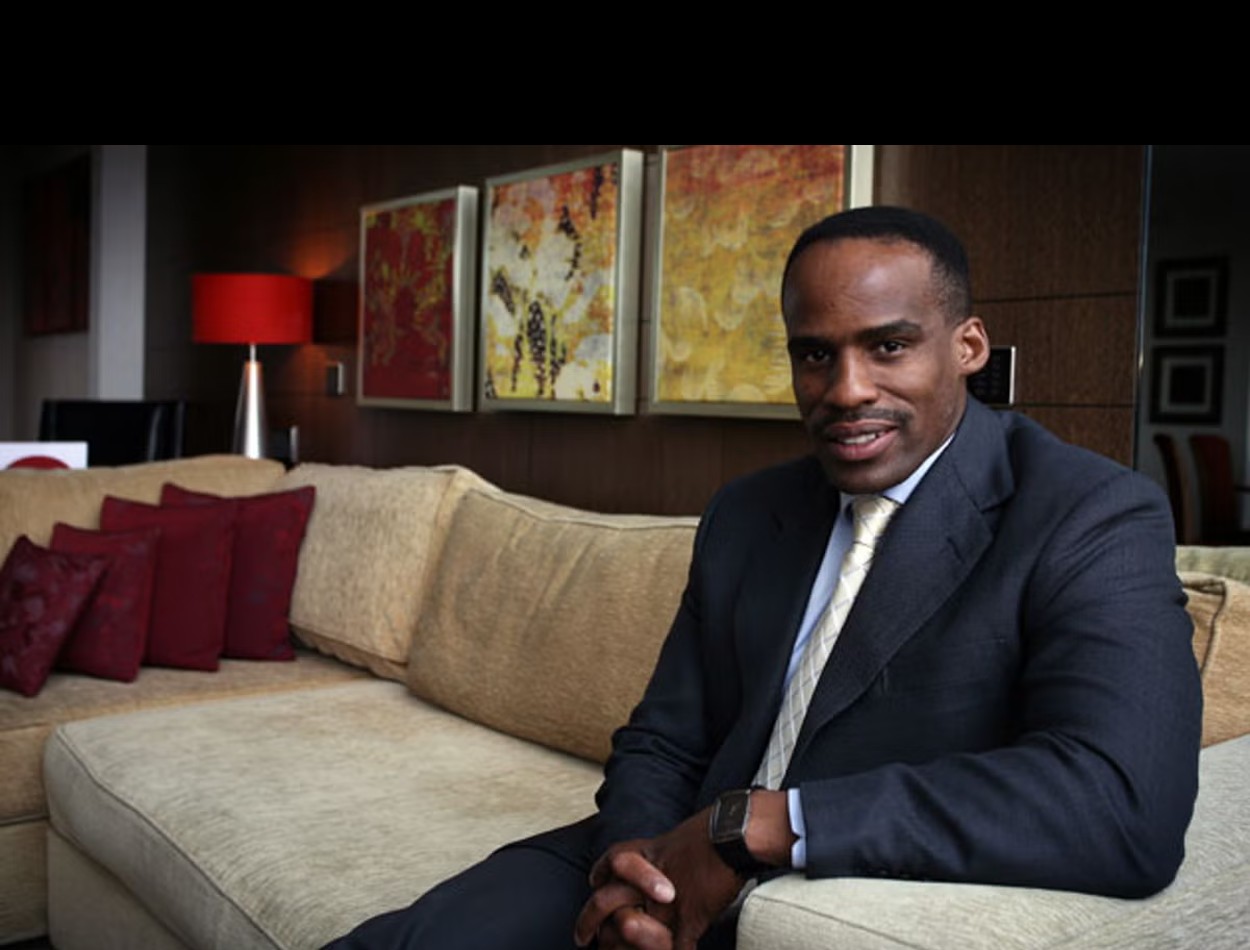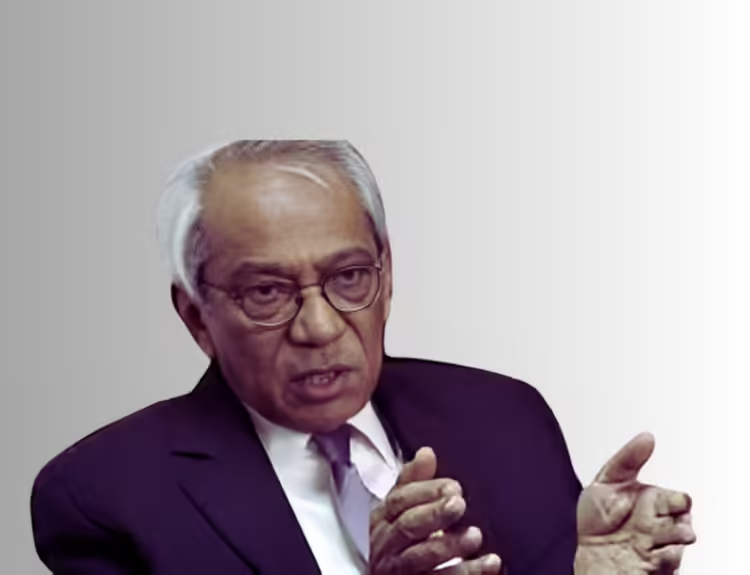In 2025, the world’s richest Black men and women are not just making headlines for their bank accounts, but for how they’re shaping industries, transforming economies, and giving back to their communities. Together, they control over $100 billion in wealth and represent a powerful force across technology, infrastructure, entertainment, finance, and manufacturing sectors.
From Lagos to Los Angeles, Kingston to Atlanta, these moguls have built business empires that span continents. But their impact goes beyond the boardroom. Many are also influential philanthropists, funding scholarships, healthcare initiatives, and social justice movements. They’ve redefined what’s possible—not just for Black communities, but for entrepreneurs and dreamers everywhere.
Let’s look at the 15 wealthiest Black individuals in 2025, how they made their fortunes, and what they’re doing with their influence.
Contents
- 1. Aliko Dangote – $23.9 Billion (Nigeria)
- 2. David Steward – $12.8 Billion (United States)
- 3. Robert F. Smith – $12.0 Billion (United States)
- 4. Mohammed Al Amoudi – $10.3 Billion (Ethiopia/Saudi Arabia)
- 5. Mike Adenuga – $7.1 Billion (Nigeria)
- 6. Abdul Samad Rabiu – $5.9 Billion (Nigeria)
- 7. Oprah Winfrey – $3.7 Billion (United States)
- 8. Michael Jordan – $3.5 Billion (United States)
- 9. Adebayo Ogunlesi – $3.5 Billion (Nigeria/United States)
- 10. Jay-Z – $2.5 Billion (United States)
- 11. Kanye West – $2.7 Billion (United States)
- 12. Rihanna – $1.9 Billion (Barbados)
- 13. Michael Lee-Chin – $1.6 Billion (Canada/Jamaica)
- 14. Tope Awotona – $1.4 Billion (United States/Nigeria)
- 15. Strive Masiyiwa – $2.3 Billion (Zimbabwe)
- Key trends in 2025
1. Aliko Dangote – $23.9 Billion (Nigeria)
Industries: Cement, Oil & Gas, Fertilizer
Key Assets: Dangote Group, Dangote Refinery
Aliko Dangote is still the undisputed king of African industry. For the 14th year in a row, he tops the list as the richest Black person in the world. His sprawling empire—Dangote Group—makes everything from cement to sugar. But his new $19 billion oil refinery near Lagos has taken things to a whole new level.
The refinery, which began full operations in 2025, is the largest single-train refinery in the world. It’s expected to reduce Nigeria’s dependence on imported fuel and boost energy security across West Africa. Dangote’s fertilizer plant, producing 3 million tons annually, strengthens African agriculture. Rising oil prices and refinery profits helped him add over $4 billion to his wealth in just one year.
2. David Steward – $12.8 Billion (United States)

Industry: Tech (IT Services)
Company: World Wide Technology
David Steward is the richest Black American—a tech giant with a low profile. He founded World Wide Technology (WWT), an IT firm with over $17 billion in annual revenue. WWT helps power cloud services, cybersecurity, and AI infrastructure for Fortune 500 companies and the U.S. government.
What makes his story even more remarkable? Steward grew up in segregated Missouri, faced systemic racism, and still built one of the largest Black-owned businesses in the U.S. His success is a masterclass in quiet power.
3. Robert F. Smith – $12.0 Billion (United States)

Industry: Private Equity
Company: Vista Equity Partners
Robert Smith is the undisputed heavyweight of Black finance. His firm, Vista Equity Partners, manages over $120 billion in assets and owns stakes in more than 80 software companies. Think of him as the go-to guy for investing in enterprise tech.
In 2025, Smith pledged $500 million to support Historically Black Colleges and Universities (HBCUs), adding to the legacy he cemented in 2019 when he paid off student debt for an entire graduating class at Morehouse College. His Fund II Foundation has given away over $1.2 billion to causes focused on education, racial equity, and tech access.
4. Mohammed Al Amoudi – $10.3 Billion (Ethiopia/Saudi Arabia)

Industries: Oil, Mining, Agriculture
Companies: MIDROC, Preem Petroleum
Born in Ethiopia and based in Saudi Arabia, Al Amoudi’s wealth comes from a portfolio that includes oil refineries in Sweden, gold mines in Ethiopia, and massive farming operations in East Africa.
His company, MIDROC, employs over 40,000 people across the Middle East and Africa. Despite political turbulence in Ethiopia, his investments in food and energy remain critical to the region’s economy.
5. Mike Adenuga – $7.1 Billion (Nigeria)

Industries: Telecom, Oil
Companies: Globacom, Conoil Producing
Mike Adenuga built Nigeria’s second-largest telecom provider, Globacom, which now boasts over 65 million subscribers. His oil company, Conoil, is one of the country’s most successful indigenous energy producers.
In 2024, Globacom rolled out its 5G network nationwide, boosting data revenues by nearly 20%. Adenuga also owns prime real estate in Lagos, New York, and London—quietly becoming one of Africa’s biggest landlords.
6. Abdul Samad Rabiu – $5.9 Billion (Nigeria)

Industries: Cement, Sugar
Company: BUA Group
Abdul Samad Rabiu is another industrial powerhouse in West Africa. His BUA Group recently opened a $2.5 billion cement plant in Sokoto—the largest on the continent. The expansion increased his net worth by $1.3 billion in just 12 months.
He’s also heavily involved in philanthropy. Through the BUA Foundation, he’s donated over $100 million to healthcare and education programs across Nigeria.
7. Oprah Winfrey – $3.7 Billion (United States)

Industries: Media, Entertainment
Companies: OWN Network, Harpo Productions
Oprah’s legacy as a media trailblazer continues. Her OWN Network reaches over 80 million homes, and her stake in WeightWatchers jumped in value after a major rebrand in 2024. She also produces original content for Apple TV+ and invests in wellness startups.
Oprah has donated over $500 million to educational initiatives, including her girls’ school in South Africa.
8. Michael Jordan – $3.5 Billion (United States)

Industries: Sports, Endorsements, Alcohol
Brands: Nike Jordan, Cincoro Tequila, Hornets (sold)
Michael Jordan’s Nike Jordan brand now brings over $6 billion annually. In 2023, he sold his majority stake in the Charlotte Hornets for $3 billion, cementing his billionaire status.
He also owns car dealerships and Cincoro Tequila, a luxury spirits brand, winning over investors and NBA fans.
9. Adebayo Ogunlesi – $3.5 Billion (Nigeria/United States)

Industry: Infrastructure Investment
Company: Global Infrastructure Partners (GIP)
Ogunlesi made headlines in 2024 when BlackRock acquired his firm, Global Infrastructure Partners, for $12.5 billion. GIP has managed over $100 billion in airports, ports, and energy infrastructure worldwide.
He’s now one of the most influential financiers in the world—and a powerful voice in global infrastructure development.
10. Jay-Z – $2.5 Billion (United States)

Industries: Music, Sports, Spirits
Companies: Roc Nation, Armand de Brignac, Tidal
Jay-Z is more than a rapper—he’s a full-blown business mogul. His Roc Nation agency manages 150+ athletes and artists. Tidal, his music streaming service, now uses AI to personalize recommendations and has grown by 40% in the past year.
His luxury champagne brand, Armand de Brignac, and cannabis ventures continue to grow his empire.
11. Kanye West – $2.7 Billion (United States)

Industries: Fashion, Music
Companies: Yeezy, Donda Academy
Kanye made a comeback in 2025 with a $1.2 billion relaunch of Yeezy, this time in partnership with independent retailers. His controversial Donda Academy is expanding, with campuses planned in Chicago and Los Angeles.
12. Rihanna – $1.9 Billion (Barbados)

Industries: Beauty, Fashion
Companies: Fenty Beauty, Savage X Fenty
Rihanna is now the richest female musician in the world, thanks to the global success of Fenty Beauty, valued at $3 billion. Savage X Fenty went public in 2024, turning her into a boardroom heavyweight.
13. Michael Lee-Chin – $1.6 Billion (Canada/Jamaica)

Industry: Finance
Company: Portland Holdings
Born in Jamaica, Lee-Chin made his fortune investing in financial services and mutual funds. He now owns luxury resorts and a diverse portfolio across North America and the Caribbean.
14. Tope Awotona – $1.4 Billion (United States/Nigeria)

Industry: Tech (SaaS)
Company: Calendly
Awotona, the founder of Calendly, turned a simple scheduling tool into a $3 billion software empire. One of the few Black tech unicorn founders, his success proves that practical innovation still wins.
15. Strive Masiyiwa – $2.3 Billion (Zimbabwe)

Industries: Telecom, Renewable Energy
Company: Econet Group
Masiyiwa’s Econet Wireless continues to expand across Africa, and his renewable energy projects are helping bridge the continent’s electricity gap. He’s also a global philanthropist, sitting on the boards of Unilever and Netflix.
Key trends in 2025
- Tech & Infrastructure Lead Growth: Steward, Ogunlesi, and Awotona are showing how tech and infrastructure continue to create new billionaires.
- Africa’s Industrial Rise: Dangote, Rabiu, and Adenuga highlight Africa’s shift from raw exports to manufacturing and telecom.
- Celebrity Power Pays Off: Jay-Z, Rihanna, and Jordan prove that branding and business savvy can turn fame into fortune.






